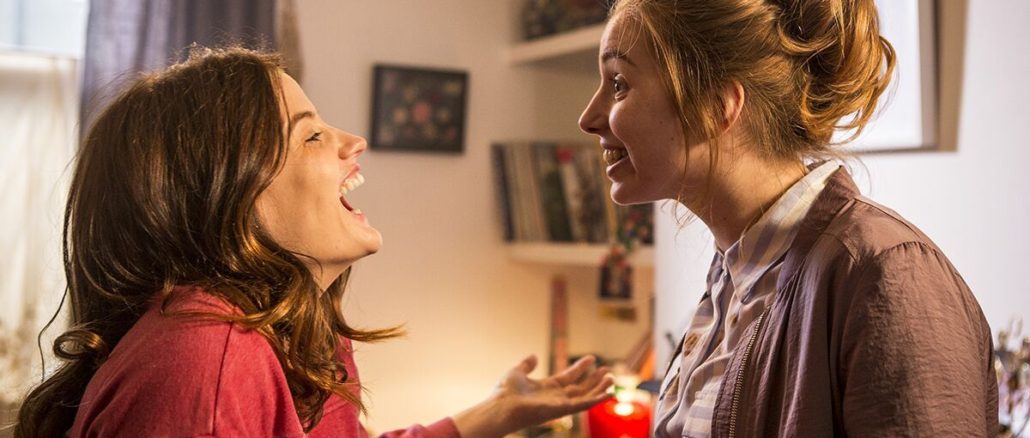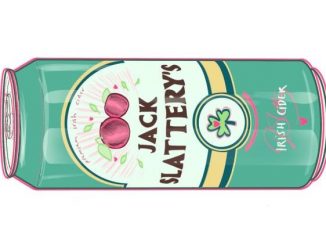
Last week saw the dramatic season finale of RTÉ’s female led dark comedy, Can’t Cope, Won’t Cope. Written by playwright Stefanie Preissner, the show hits a little too close to home with its eerily accurate portrayal of twenty something Irish women living it up in ‘the big smoke’. Over a tension filled six episodes, Aisling (Seana Kerslake) and Danielle’s (Nika McGuigan) fragile friendship is tested time and time again as the girls attempt to find the perfect balance between the craic and work–a toxic partnership if there ever was.
Coined the Irish Girls, Can’t Cope, Won’t Cope addresses many issues that affect young women. While actress and writer of Girls Lena Dunham was heralded by critics for her realistic depiction of women, the privileged, brash and spoilt New Yorker is not someone all Irish girls can relate to.
Preissner’s sharp witted, quintessential colloquialisms are excellent and add to the humour of the show but she also manages to skillfully capture the nature and mannerisms that make the Irish woman so different from any other. The emphasis on drink culture, awkward hookups and the necessity of casting all worries away on the dancefloor of Copper Face Jacks are all things she gets spot on.
One scene that stands out in particular, is a trip Aisling makes to the pharmacy to obtain emergency contraception after a one night stand–the stranger she slept with just so happens to be her bosses’ younger brother (a role that Amy Huberman smashes, to no surprise). As if the embarrassment of getting the morning after pill isn’t enough, poor Aisling has to face an actual lecture on the serious implications of her lifestyle. “I’m not that kind of girl, like, I don’t sleep around,” is her fitting response to being asked to consider the pill.
It’s these painfully awkward yet relatable scenes that make the show’s message so effective. Although it may be fun to a point, we quickly learn that there is nothing glamorous about the long term effects of being a party girl. Aisling’s complete over reliance on alcohol as a coping mechanism may be slightly blown out of proportion. However, her inability to take things seriously juxtaposed with Danielle’s drive and ambition to succeed is a powerful visualisation of how quickly we can lose ourselves given the right amount of liberation and independence. A big theme in the show is the idea of the country girl who moves to the city and without the support network of her family she makes her friends family in order to survive. As one might expect, Aisling’s dependence on Danielle turns out to be her downfall.
When asked by the Irish Times about her inspiration behind the show, Preissner amounted it to “watching television and not seeing [herself] being represented. I don’t see sex or entertainment or drinking or any of that culture represented in the way I experienced it,” she said. Similarly, producer Ailish McElmeel maintains that RTÉ are under-representing their audiences and that everyone wants to see themselves on screen. Although certain situations are indeed scripted solely for dramatic effect (the guards linking Aisling to that car namely), Preissner’s brutally honest writing wins us over the majority of the time.
We can all see a little bit of ourselves in the two main characters. Aisling is hilarious, good-looking and smart but is incredibly selfish and lacks the mindset to see beyond having fun in the now. Danielle on the other hand, is tired of being taken for granted and succumbing to other’s wants rather than focusing on pursuing her passions. The downhill spiral of the last three episodes in particular is nearly nauseating as you just want to reach into the screen, tell Aisling to pull herself together and give her shoulders a shake. Similarly, the constant confrontational style of the series in general is uncomfortable to watch but it certainly makes you think – about your lifestyle choices in particular.
Overall, Can’t Cope, Won’t Cope is an excellent addition to RTÉ’s growing catalogue of diversity. A huge emphasis on the upcoming autumn/winter season has been placed on strong female led shows, with Striking Out giving our nation’s sweetheart, Amy Huberman another star role. The quality of female representation on TV is continuing to grow at a high rate and our nation’s leading broadcasters are certainly delivering. The series is fresh, honest and asks all the right questions of its audience–an excellent effort by Preissner and its cast.
Scout Mitchell




Leave a Reply